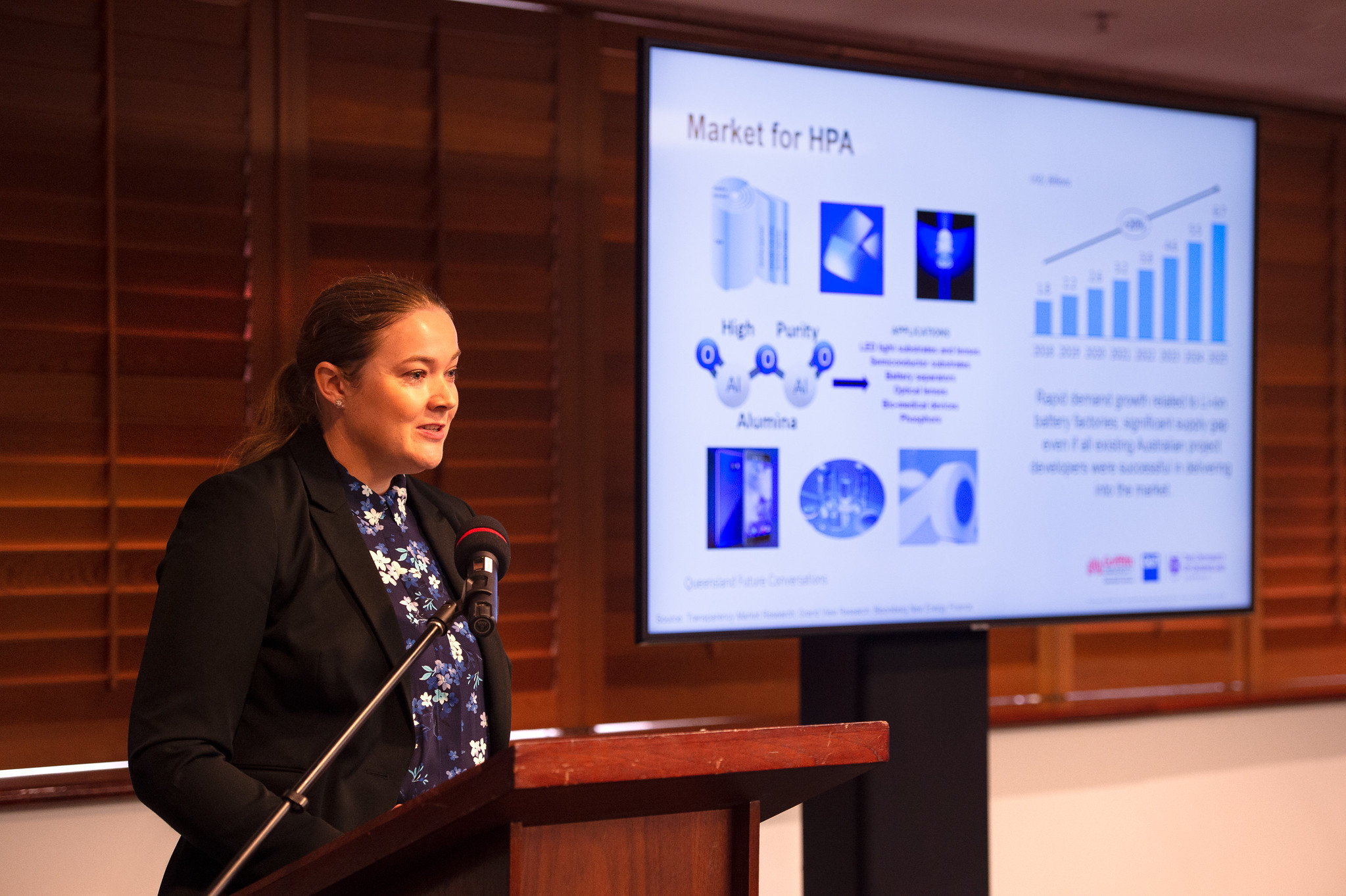Queensland has an opportunity to value-add along its battery materials (Li-ion) supply chain and other strong industries to ensure economic stability post-COVID but it will require a coordinated approach according to a QUT expert.
Associate Professor Sara Couperthwaite, a QUT researcher focused on commercial outcomes, addressed Queensland Parliamentarians on supporting job creation post-COVID at the Queensland Future Conversations breakfast this morning.
"If we make and sell products from our natural resources rather than sell these raw, we can build our capacity and ability to meet global market demands and ensure our economic future," Associate Professor Couperthwaite said.
"Australia, and Queensland specifically, has resources and processing capabilities in the Li-ion battery value chain, and the proposed $2B Li-ion battery Gigafactory in Townsville would build our advanced manufacturing capacity."

The Li-ion battery market was valued at $36.7B in 2019 and is projected to reach $129B by 2027—growing rapidly due to global electric vehicle targets.
The Future Battery Industries Cooperative Research Centre's State of Play notes Australia's many opportunities to build a battery value chain but it requires a coordinated approach by state and federal governments towards the minerals industries, downstream production and battery manufacturing.
In 2018, QUT partnered with start-up Lava Blue to develop a process that turned $70/t kaolin clay into $39,000/t high purity alumina (HPA) – a key material used in sapphire glass and battery separators.
In collaboration with the IMCRC, the research is de-risking the scale up process to a commercial plant, intended for Charter Towers, by incorporating real-time monitoring and machine learning approaches.
"This high-level of industry engagement resulted in research that could build resilience within the sector, and also provided Lava Blue with the opportunity to license technology," Associate Professor Couperthwaite said.
"Research commercialisation like this needs to be more incentivised if we are to maximise our national resources, investments and talent to achieve economic resilience."
The Queensland Government's intention to build a strong culture of research and innovation for new products and services is essential to stimulate the economy, employment and sustainability, according to Couperthwaite.
"Australia's manufacturing industry is undergoing rapid change stimulated by federal funding opportunities and is important to secure national supply chains.
"Queensland's opportunity is to expand our sovereign capabilities by helping to secure entire supply chains, build skilled workforces to support them, incentivise investment and new industry start-ups."
The University Research Commercialisation consultation paper announced by Hon Minister for Education and Youth, Alan Tudge last month revealed intellectual property risks and other barriers to greater university-industry research collaboration. The consultation paper is seeking views on the development of a model for university research commercialisation.
The consultation paper stated that only 1.6% of innovating business in Australia collaborate with universities.
"A rapid pace of technical and scientific innovation requires a coordinated approach by industry, government and universities," Associate Professor Couperthwaite said.
"We need more incentives for industry to invest higher percentages of turnover and profits back into innovation, research and development in line with current leading countries if we are to become global innovation competitors."






